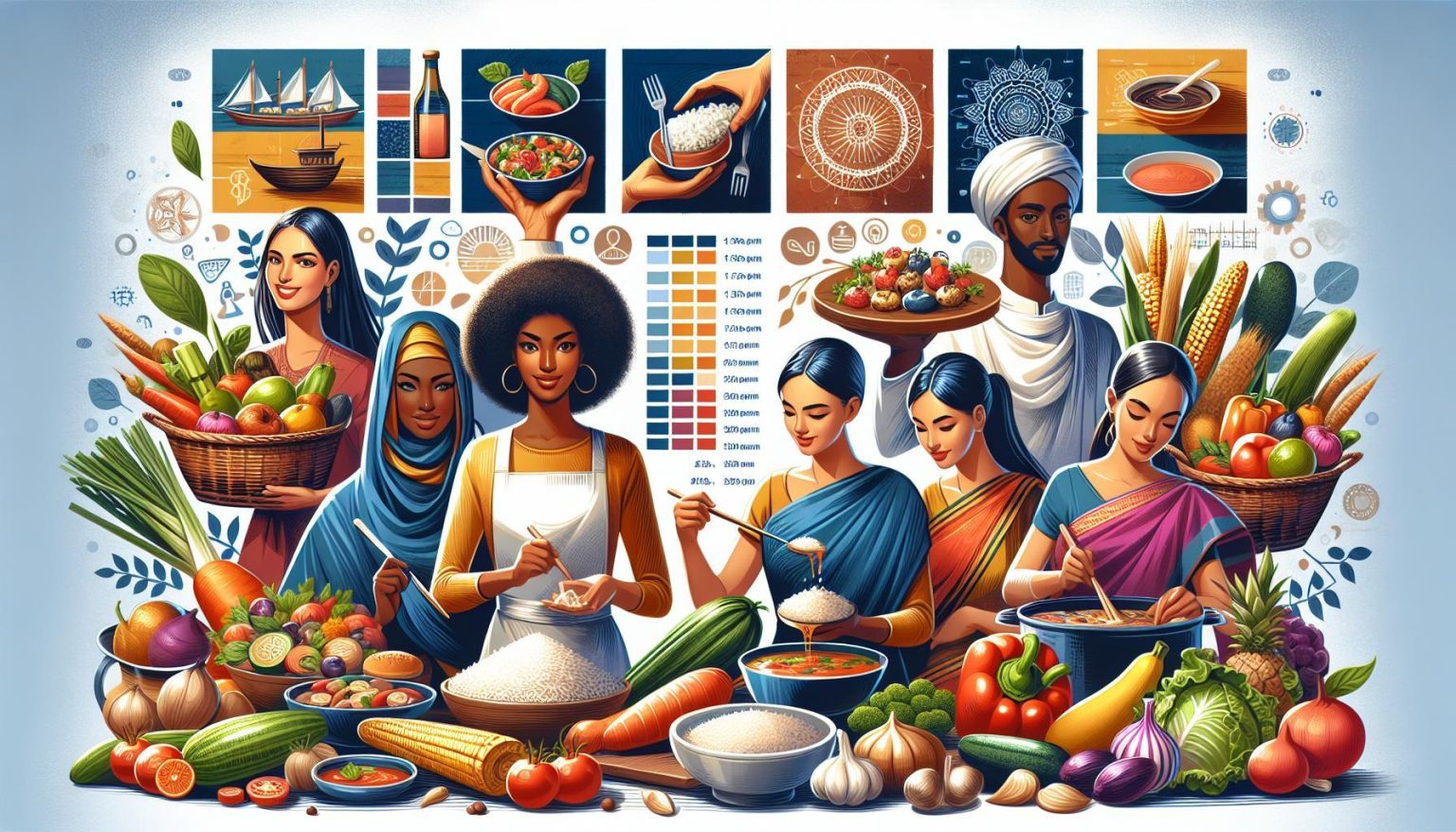As we journey across the globe, we quickly discover that food is much more than mere sustenance. Each bite carries whispers of regional heritage, intricate beliefs, and tacit rituals, weaving together vivid spectrums of eating traditions in indigenous cultures. From the subtropical culinary artistry of East Asia to the nutritious staples spiraling around the Mediterranean diet benefits, our shared gastronomy paints a fascinating portrait of our ancestors’ wisdom and resilience. Our blog today pries into a topic close to all our hearts and stomachs: the “Nutritional Needs Across Cultures”. By delving into the diverse dietary traditions and habits of various cultures, we aim to uncover the healthful secrets they hold and how these practices contribute to their communities’ overall well-being.
Nutritional Diversity Across Cultures
The second section of our journey calls for an exploration of the broad range of nutritional diversity across cultures. Within these diverse eating patterns, we find a wellspring of nutrients, each catering to the specific geographical, ecological, and societal conditions of the region.
Nourishing Body and Soul
Many indigenous cultures cleverly utilized the resources available to them, crafting not just diets, but complete lifestyles focused on nourishing both body and soul. They understood that nutrition is not merely a physical act, but rather a holistic involvement of emotional, psychological, and spiritual well-being.
Cross-Cultural Food Exchange
Food exchange across various cultures has significantly shaped our nutritional patterns. Impacted by trade routes, climate change, or just curiosity, cross-cultural food swap has driven the evolution and diversity of our diets.
Spicing up Life
Spices, arguably one of the biggest exports in history, tell tales of cultural exchange and exploration. From the tangy turmeric of the East to the fiery chili peppers of the Americas, spices flavored our diets while offering exceptional health benefits.
Adaptability of Nutritional Needs
Over millennia, humans have artistically adapted to meet nutritional needs within the context of their local environments. This adaptability, engraved in our DNA, led to the development of culture-specific nutritional necessities and preferences.
Arctic Adaptation
For instance, the Inuit populations, living in harsh Arctic conditions thrived on a high-fat, low-carb diet, rich in omega-3 fatty acids from sea mammals and fish. These nutritional adaptations practically spotlight the remarkable resilience of human diets.
Modernity’s Influence on Traditional Diets
Our fifth stop delves into how modernity, globalization, and western influence have dramatically metamorphosed traditional diets, often causing an eclipse of nutritional benefits that the erstwhile practices offered.
Fast Food vs. Slow Tradition
The upsurge of fast food culture, while catering to the modern-day rush, often obscures the prodigious values of traditional fare, leading to various health issues often traced to poor nutrition.
Reclaiming Traditional Nutritional Wisdom
Despite the challenges, there is a burgeoning movement to reclaim traditional nutritional wisdom. This aims not just to revive and foster an appreciation for rich culinary heritages but also to foster healthier living.
Diet Correction
By reverting to a diet more aligned with our genetic makeup and environment, we can counter modern diet-related diseases like obesity, diabetes and heart disease, whilst celebrating our culinary heritage.
Multi-Cultural Diets and Personal Health
The seventh phase of our investigation illustrates how learning and adopting nutritional practices from various cultures can indeed enrich our personal health profiles.
Cultural Appreciation
Appreciating multi-cultural diets can broaden our nutritional palette, allowing us to take advantage of the myriad health benefits offered by different foods prominent in various cultures.
Conclusion
In our gastronomic journey, we have seen the richness and diversity of “Nutritional Needs Across Cultures.” As we inveigled into the nutritional heritage of various cultures, we learned how our ancestors skillfully crafted diets relevant to their geography and ecology, weaving together food and health in a magnificent cultural tapestry. It is, therefore, vital for us to appreciate these traditional dietary practices and understand how they can illuminate our path to a healthier, more balanced lifestyle.
Frequently Asked Questions – FAQs
1. What are the benefits of cross-cultural eating?
Cross-cultural eating introduces us to a vast array of foods, often expanding our nutritional spectrum and exposing us to health benefits unique to particular regions and traditions.
2. How does cultural diversity affect nutrition?
Cultural diversity significantly impacts nutrition by introducing variety, including various micronutrients and macronutrients that contribute to balanced and healthy diets.
3. What are the nutritional benefits of traditional diets?
Traditional diets often make the most of local, seasonal produce that is nutritionally dense and appropriate for the local environment, contributing to the overall well-being of the community.
4. How can we incorporate lessons from traditional diets into our lifestyle?
We can learn from traditional diets by understanding and borrowing principles like eating a variety of local foods, seasonal produce, and maintaining respectful relationships with food and nature.
5. How has globalization impacted traditional diets?
Globalization has both positive and negative effects. While it has made a wide variety of foods available all year round, it has also led to the displacement of traditional foods and practices with fast foods and processed goods, often negatively impacting health.










